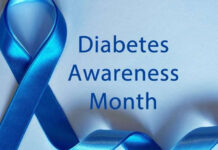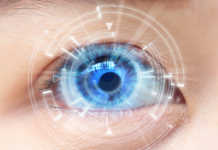
When we think of “attention deficit hyperactivity disorder” (ADHD), we often associate it with children. However, about 60 per cent of people affected as children will experience the symptoms of ADHD into adulthood. Symptoms can include impaired concentration, distractibility, hyperactivity and impulsivity. Thankfully, there are natural and effective ways of managing
these symptoms. Naturopathic doctor Urszula May of Naturopathic Foundations in Markham, Ontario, points to environmental toxicity as the primary cause of the symptoms of ADHD in children and adults alike.
EXPOSURE TO TOXINS
“The root causes are very similar, whether you’re a child or an adult,” she says. “If you’re talking about kids, you’re looking at whether their mom smoked or there was lead exposure [during gestation] or something like that. When you’re talking about adults, it still could have been something they were exposed to in childhood, but it could also be exposure on the job site; for instance, if you’re a painter and you’re inhaling fumes all day, or you’re working in a chemical plant or you live in a really toxic area.”
Other factors that can come into play include diet, exercise, thyroid disorders, allergies and sensitivities, even intestinal parasites and funguses.
While there are many allopathic drugs on the market to treat ADHD, the side effects can be serious.
“You’re either going to be on a psycho-stimulant, like Ritalin, or an anti-depressant, something like Prozac, or on both of them,” explains May. “And we know very well that both of those things cause liver damage and increase the risk of cardiovascular disease, heart failure and stroke. Those are pretty significant side effects that aren’t that uncommon. The question is, at what point do the negative consequences of taking the drug outweigh the consequences of not taking them?”
ALTERNATIVES TO DRUGS
If an adult who has been diagnosed with ADHD or who is experiencing symptoms of ADHD chooses not to take these drugs, there is a variety of effective naturopathic treatments available.
“The very first thing I do with everybody, no matter what the symptom picture, is look at the diet,” says May. “Diet and exercise are the basis for healthy living. We check the diet, we check deficiencies in the diet and then we check for food sensitivities.
“Once those things are out of the way, we look at other things, like improving digestive health with supplements. And then exercise—there’s massive amounts of research, especially with the adult population, that shows how effective regular exercise is in managing symptoms and really getting rid of these concerns.”
By adopting a holistic approach, ADHD and its symptoms can be effectively managed in children and adults, without the scary
side effects.












